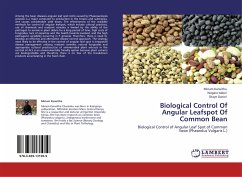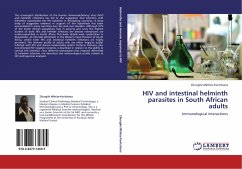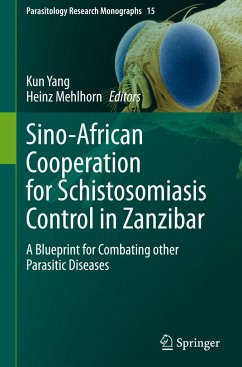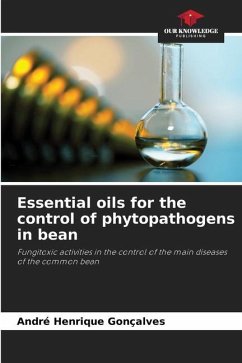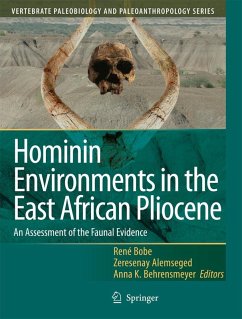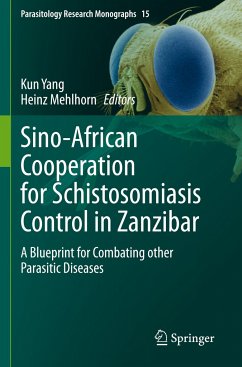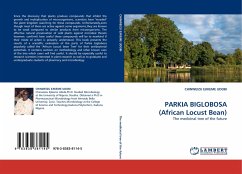
PARKIA BIGLOBOSA (African Locust Bean)
The medicinal tree of the future
Versandkostenfrei!
Versandfertig in 6-10 Tagen
39,99 €
inkl. MwSt.

PAYBACK Punkte
20 °P sammeln!
Since the discovery that plants produce compounds that inhibit the growth and multiplication of microorganisms, scientists have "invaded" the plant kingdom searching for these compounds. Unfortunately,even though most of them are active against some organisms,they are known to be weak compared to similar products from micoorganisms. The effective natural preservation of wild plants against microbial threats however, confirmS how useful these compounds will be to mankind if their mode of action is properly understood. This book presents the results of a scientific evaluation of the parts of Par...
Since the discovery that plants produce compounds that inhibit the growth and multiplication of microorganisms, scientists have "invaded" the plant kingdom searching for these compounds. Unfortunately,even though most of them are active against some organisms,they are known to be weak compared to similar products from micoorganisms. The effective natural preservation of wild plants against microbial threats however, confirmS how useful these compounds will be to mankind if their mode of action is properly understood. This book presents the results of a scientific evaluation of the parts of Parkia biglobosa popularly called the "African Locust bean Tree" for their antibacterial potentials. It contains sections on methodology and other known uses of the tree which users will find useful. It should be especially useful to research scientists interested in plant research as well as to graduate and undergraduate students of pharmacy and microbiology.



